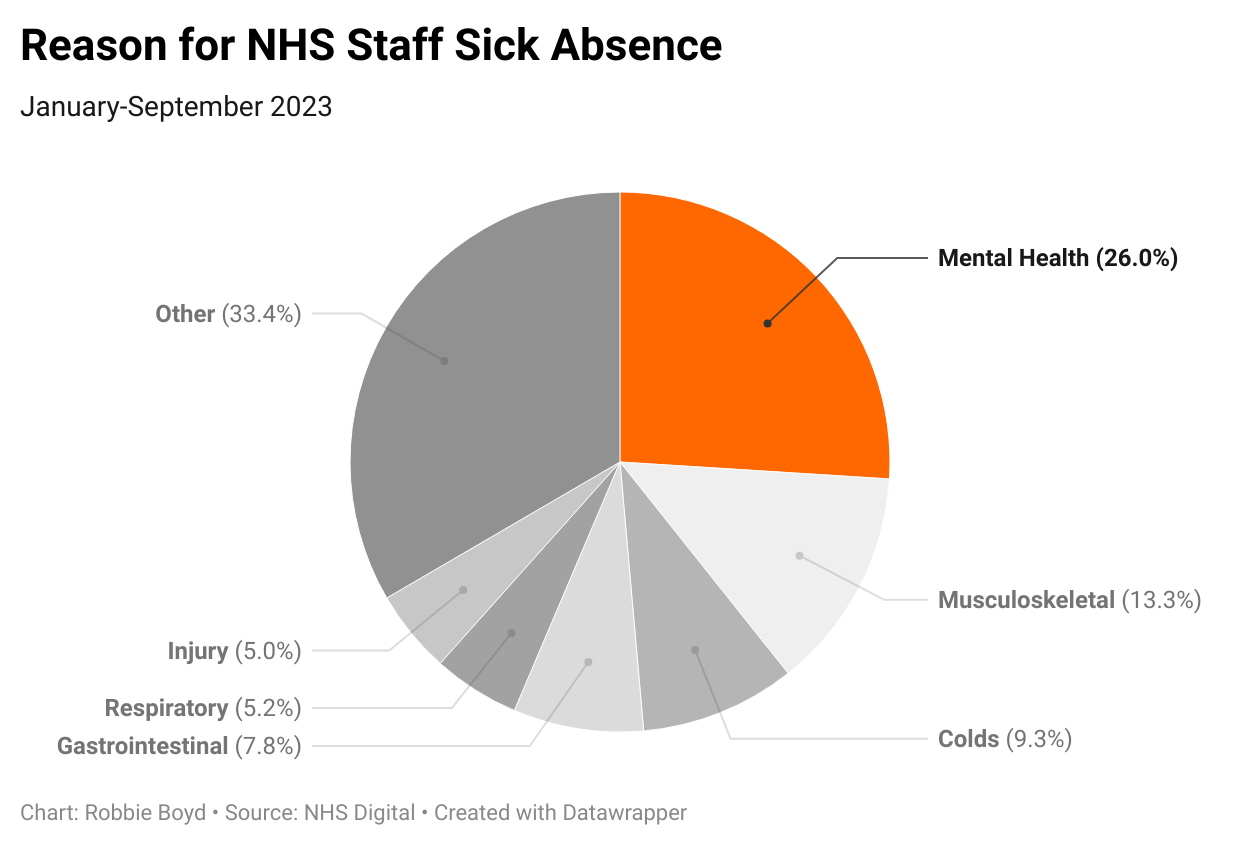MENTAL HEALTH TOP REASON FOR NHS STAFF SICK DAYS
Anxiety, stress and depression are the leading cause of sick days for NHS staff, according to data released by NHS digital.
Mental health issues accounted for 26% of sick days taken by NHS workers from January to September 2023, the highest in the public sector and over double that of the UK labour market as a whole.
Katherine Edwards, a pharmacist at a central London hospital said, “for some positions the hours are crazy, everyone’s burnt out, and you’re dealing with pretty traumatic stuff everyday. I’m really not surprised clinical staff are taking time off with anxiety.”
In July last year, an unprecedented 571,500 full-time hours were lost due to mental health-related absences. In the same month, junior doctors went on a five day strike, demanding pay restoration and improved working conditions.
This month, strike action restarted, and doctor’s mental health is becoming a key discussion point. Hannah, a junior doctor at Winchester Hospital says she is on strike partly as a result of how the job is adversely impacting her mental health.
“I want to make clear to the government that we can’t keep working like this, I don’t even have time for a cup of tea in my 12 hour shift.”
The strikes are likely to create further stress and anxiety however, with consultants taking on an even greater workload to cover for their colleagues, and patient waiting lists becoming further backlogged.
Further data from NHS digital showed that sick leave for any reason reached an all time high in 2022. The average rate of sick absence for NHS staff was 5.6%, nearly three times as much as the rest of the UK workforce.
A report from The Nuffield Trust suggests that the true sickness rate is likely even higher, given not every absence is recorded.
As well as mental health, leave for cough, colds and respiratory problems has risen since 2019. This is likely linked to coronavirus, which healthcare workers are more likely to come into contact with.
The Nuffield Trust explained the implications in their report, “high sickness absence is bad for NHS staff, bad for providers of health care in terms of costs and disruption to patient care, and expensive for the taxpayer.”
As well as mental health, leave for cough, colds and respiratory problems has risen since 2019. This is likely linked to coronavirus, which healthcare workers are more likely to come into contact with.
The Nuffield Trust explained the implications in their report, “high sickness absence is bad for NHS staff, bad for providers of health care in terms of costs and disruption to patient care, and expensive for the taxpayer.”



